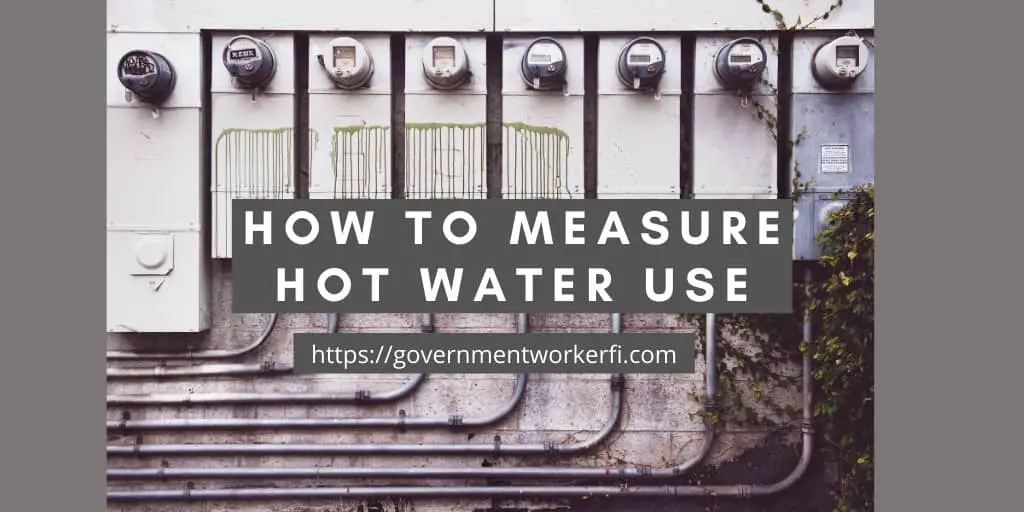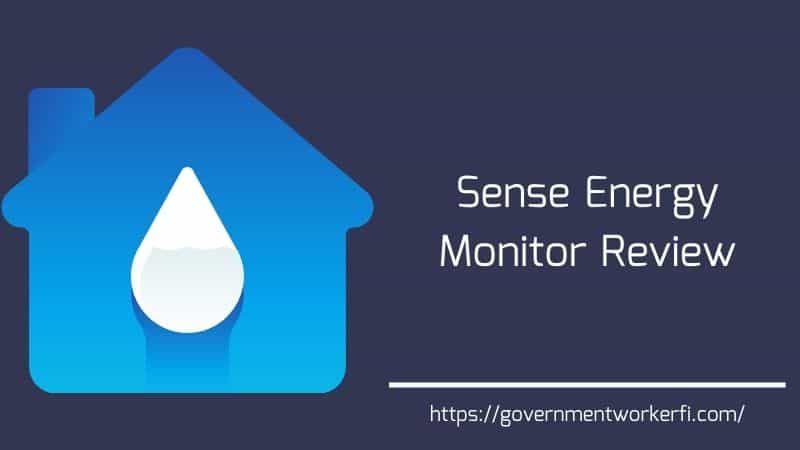What if you could take long hot showers for a fraction of the cost?
There’s nothing better than reaching for the tap and turning on nice warm water. Except when you get your electric bill at the end of the month.
If you have an electric hot water system in your house you’re literally pouring money down the drain each time you turn the faucet knob.
I love warming up in the shower after spending time in the cold but hate wasting money. That’s why I developed my own DIY system for heating water on off peak times.
Do YOU want to save money on hot water? Just follow my lead to develop your own homemade off peak hot water heater.
Table of Contents
- How a Hot Water Heater Works
- Hot Water Heater Gas or Electric
- Time of Use Metering
- My Off Peak Hot Water System
- How much does it save us?
- Summary
Disclaimer- one of my loyal readers pointed out that low water heater temperatures can lead to Legionnaires disease. While I had only heard of Legionnaires disease being spread in fountains or nursing homes, please be careful as you tinker with your water heaters. Also, this is just a personal blog and not health advice.
How a Hot Water Heater Works
Let’s start with the basics. A hot water heater turns potential energy (from electricity or natural gas) into thermal energy. (The scientist in me wanted to write several paragraphs about thermodynamics. However, I know that 99.9999% of people that read this page don’t want to have to scroll past thermodynamic derivations.
Most hot water heaters heat water slowly and store it in a big tank. We call this a storage water heater. When you turn on your tap, cold water fills the bottom of your water heater while hot water flows out the top to your tap. Then the water heater begins to slowly heat the cold water at the bottom of your tank. Even if you don’t use any hot water, your water heater will turn on occasionally to replace heat lost through the sides of the tank (“standby losses”).
If you’ve never thought about your water heater before in your life, chances are you have a storage water heater.
![How To DIY An Off Peak Hot Water Heater [Save Money] 1 electric storage water heater picture.](https://cdn-0.governmentworkerfi.com/wp-content/uploads/2021/02/electric-water-heater.jpg)
In contrast to a storage hot water heater, a tankless hot water does not store hot water. The tankless hot water uses a lot of power to “instantaneously” heat the cold water as it flows to your sink. Tankless hot waters may save you money because you don’t have standby losses. However, the payback time for replacing a storage hot water heater with a tankless model is greater than the expected cost of the water heater. (On the other hand, if you are building your home or are involved with new construction, you may wish to consider a tankless model).
In the remainder of this article, I’m going to describe how our DIY off peak hot water heater system saves us money without having to replace the water heater.
Hot Water Heater Gas or Electric
As I said previously, water heaters take potential energy and turn it into thermal energy. Most water heaters get their potential energy from either gas or electricity to heat the water in your tank. Let’s talk about each type.
How Does an Gas Hot Water Heater Work
Gas hot water heaters function like a mini-boiler. They burn natural gas in a controlled manner to heat water at the bottom of your tank. Not all of that energy gets converted into hot water. The “efficiency factor” tells you what percentage of the energy you burn actually heats up the hot water. A typical gas hot water heater might have an efficiency factor of 0.5-0.65. (So in other words, you are wasting 35-50% of your energy).
How Does an Electric Water Heater Work
Electric hot water heaters have pass an electrical current through a heating element. The resistance in the element produces heat. Electric water heaters generally have an efficiency factor of greater than 0.9. While that makes it seem like electric hot waters are more efficient it is important to note that:
- Power plants are only 30-75% efficient at converting fossil fuels into electricity. (So if you get your electricity from fossil fuels, you need to burn more fossil fuels to heat a gallon of hot water with an electric hot water heater).
- In general, electricity costs more than natural gas for a given amount of energy. This is confusing because you’re billed for a “therm” of natural gas and a “kWh” of electricity.
- As a result, electric water heating generally costs more than gas water heaters to operate. However, they can easily be installed in nearly any house.
My off-peak hot water system takes advantage of “Time of Use Metering” to save money by heating water only during off peak times.
Time of Use Metering
Most electric companies use time of use metering to help them balance electric demand throughout the day. At the middle of the day, businesses are in full operation and using a lot of energy. Furthermore, in the summer, the peak air-conditioning demand occurs in the afternoon. As a result, the peak electricity demand happens in the mid-day and the lowest electricity demand occurs in the middle of the night.
While the demand for electricity has a diurnal pattern, the supply of electricity cannot easily be changed. Powerplants supply a “base amount” of electricity at all hours of the day and night. Similarly, there is a maximum amount that the plants can produce. To smooth the demand for power to better match the supply, utilities offer incentives to use less electricity during the day and more at night.
This variable electricity pricing is formally called “time of use” (TOU) metering. Large consumers of electricity (i.e. factories) are required to use TOU metering. However, most residences pay a fixed amount per kWh no matter when they use electricity.
Not sure if you have TOU metering at your residence? Check your latest utility bill to see if you have 1 price for electricity or several.
Our utility offers TOU metering for residential customers, however, they do not advertise it. I had to call them and ask for it. After signing up for the program, they put a new electric meter on my house and we started to get billed at three different rates.
We pay 4 cents per every kWh of electricity we use. During the peak times, we pay a surcharge of between 14-17 cents per hour. (In contrast, if we paid typical electric rates, we would pay 10 cents per kWh for all of our electricity.
Even with COVID, we managed to shift 75% of our electricity use to nights and weekends. As a result, we are able to lower our electric bill by 20% or more each month.
One big reason for our savings is that we only heat water during off peak times. Not only does this plan save us money, but it also helps the utility load control their users and reduce strain on the electric grid.
My Off Peak Hot Water System
When we bought our house, it came with an 80 gallon electric water heater. Our house had this giant water heater because it used to be a college rental. It is much too large for our family, which uses only about 35 gallons of hot water each day.
This large water heater costs a lot of money to run. Not only do I hate wasting money, but I also hate wasting energy. I thought about replacing the entire water heater to save money and energy. However, this seemed expensive and wasteful. The time it would take to recoup my expenses would be longer than the life of the water heater.
For a while I thought I was stuck with this giant 80 gallon albatross. But then, I talked to a fellow energy nut and they mentioned the idea of using a pool timer or sauna timer to control when my hot water heater generated hot water.
It took some research, but I was able to find a 240 V timer compatible with my water heater (affiliate link). I was able to install the timer within about an hour. We now only generate hot water during off peak times.
Off Peak Water Times
We have three different categories of “on-peak” time throughout the day. Off peak time begins at 9 PM and ends and 10 AM. Also, the entirety of Saturday and Sunday are billed as off peak time as well as the six biggest holidays (Christmas, New Years, Memorial Day, 4th of July, Labor Day, and Thanksgiving).
I set our water heater timer to generate water from 9:05 PM to 9:55 AM every day. On weekends, the timer turns the water heater back on at 10:05 AM and off again at 8:55 PM.
We only use about 35 gallons of hot water each day. Therefore, there is plenty of hot water for us to use between 10 AM and 9 PM.
Unfortunately, we prefer to shower in the evenings. Occasionally, if all of us shower on the same night, the last shower might start the get a little bit cool. However, we seem to be able to manage it for the most part.
How much does it save us?
To understand how much this system saves us, we need to know how much hot water we use. The common method for determining hot water usage is to use a calculator based upon government data.
- 2 showers per day (5 people bathing every/other day)
- 1 dishwasher run per day
- 1 time washing dishes by hand in the sink per day
- 3 sink sessions of washing faces
From the calculator, I estimate we use about 42 gallons of hot water per day (This is pretty close to my measured value).
To heat this amount of water from 55°F to 128°F, it takes 16 kWh (at 90% efficiency). These calculations ignored standby losses (tank cooling off into the basement) and whatever water we use to wash our hands.
The difference between the off peak rate and the standard rate for most households is 13.3 cents per kWh. Therefore, we save approximately $0.99 per day with the timer.
While $0.99 doesn’t sound like a lot, we have saved $0.99 cents per day since I installed the timer over 10 years ago. By avoiding peak water heating times, this timer has paid for itself many times over.
In fact, I calculate this 1-hour fix has saved us nearly $4,000!
Summary
I hacked out hot electric water heater by installing a 240V timer so we only heat water on off-peak times. The timer was super easy to install, and took about an hour. I installed the timer next to the panel, however it could just as easily be installed next to the water heater as well.
We now only generate hot water during off peak time (from 9PM to 10AM M-F and all day Saturday and Sunday). Because the tank is so large, we are able to use the hot water throughout the day without generating more hot water. It’s a great solution and has saved us thousands of dollars.
Get Gov Worker’s top 4 tips for federal employees!
![How To DIY An Off Peak Hot Water Heater [Save Money] 2 pinterest pin for off peak hot water system](https://cdn-0.governmentworkerfi.com/wp-content/uploads/2020/09/Copy-of-How-I-hacked-our-electric-hot-water-heater-to-save-us-money-and-save-the-planet-Pinterest-Pin-683x1024.jpg)
![How To DIY An Off Peak Hot Water Heater [Save Money] 3 hot water heater timer in use](https://i0.wp.com/governmentworkerfi.com/wp-content/uploads/2019/02/IMG_7650.jpg?fit=840%2C630&ssl=1)



